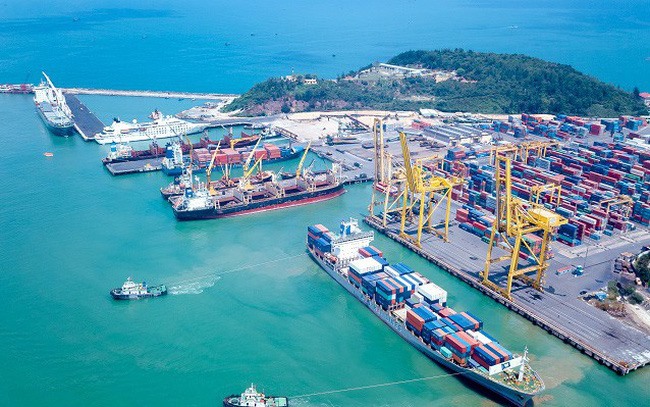 Economy
Economy

Đà Nẵng Port handled more than 774,000 tonnes of cargo in June, the highest amount so far, according to Việt Nam National Shipping Lines (Vinalines).
 |
| Đà Nẵng Port handled more than 774,000 tonnes of cargo in June, the highest amount so far, according to Việt Nam National Shipping Lines (Vinalines).— Photo cafef.vn |
HÀ NỘI — Đà Nẵng Port handled more than 774,000 tonnes of cargo in June, the highest amount so far, according to Việt Nam National Shipping Lines (Vinalines).
The volume of cargo transported through the port in the central coastal city on container ships reached a record of 32,406 TEUs (20-foot equivalent unit) over the month, up nearly 4 per cent compared to the 31,280 TEUs in December 2017.
The port received more than four million tonnes of cargo in the first six months of 2018, a year-on-year rise of 6.14 per cent.
It welcomed 912 ships, including 551 container ships, up 3.3 per cent year-on-year.
Commodities with high growth included clinker (up 141 per cent), wood chips (up 80 per cent), coal (up 40 per cent), cement (up 88 per cent) and equipment (up 64 per cent).
The important seaport also welcomed a large number of cruise ships.
In January-June, the port received 71 cruise liners, up 36 per cent from the previous year’s same period, while serving 107,381 tourists and crew members, up 7.6 per cent.
The increased presence of high-end cruise ships, such as Costa Atlantica and World Dream, showed the port’s brand value in regional and global tourism maps.
Located within Đà Nẵng Bay and shielded by Hải Vân Mountain and Sơn Trà Peninsula, Đà Nẵng Port is capable of receiving vessels of up to 50,000 DWT.
It is a gateway to the east-west economic corridor and is connected with an extensive road network, as well as aviation and railway routes.
The port serves containers, cruises and high-capacity vessels, while also providing logistics services.
According to the Ministry of Transport, Đà Nẵng City’s port system will handle 29 million tonnes of cargo by 2030. — VNS




